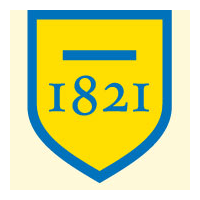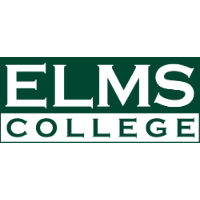What do they do?
Perform administrative and certain clinical duties under the direction of a physician. Administrative duties may include scheduling appointments, maintaining medical records, billing, and coding information for insurance purposes. Clinical duties may include taking and recording vital signs and medical histories, preparing patients for examination, drawing blood, and administering medications as directed by physician.
Also known as:
Certified Medical Assistant (CMA), Chiropractic Assistant, Chiropractor Assistant, Clinical Medical Assistant, Doctor's Assistant, Health Assistant, Medical Assistant (MA), Ophthalmic Assistant, Ophthalmological Assistant, Optometric Assistant, Outpatient Surgery Assistant, Registered Medical Assistant (RMA)
-
13.5%
Change
Ranks #46 in job growth rate3,620Job Openings
Ranks #10 in net job growth
-
NUC University
Bayamon, PR
-
Widener University
Chester, PA
-
College of Our Lady of the Elms
Chicopee, MA
-
Siena Heights University
Adrian, MI
-
Lewis-Clark State College
Lewiston, ID
Looking for colleges that offer a specific major? Use the College Match Tool to find your best-matched schools and discover your estimated Net Price!
- Doctorate or Professional Degree (1%)
- Master's degree (2%)
- Bachelor's degree (12%)
- Associate's degree (25%)
- Some college, no degree (38%)
- High school diploma equivalent (20%)
- Less than high school diploma (2%)
People in this career often have these skills:
- Social Perceptiveness - Being aware of others' reactions and understanding why they react as they do.
- Active Listening - Giving full attention to what other people are saying, taking time to understand the points being made, asking questions as appropriate, and not interrupting at inappropriate times.
- Speaking - Talking to others to convey information effectively.
- Reading Comprehension - Understanding written sentences and paragraphs in work-related documents.
- Critical Thinking - Using logic and reasoning to identify the strengths and weaknesses of alternative solutions, conclusions, or approaches to problems.
- Monitoring - Monitoring/Assessing performance of yourself, other individuals, or organizations to make improvements or take corrective action.
- Coordination - Adjusting actions in relation to others' actions.
- Service Orientation - Actively looking for ways to help people.
- Writing - Communicating effectively in writing as appropriate for the needs of the audience.
People in this career often know a lot about:
- English Language - Knowledge of the structure and content of the English language including the meaning and spelling of words, rules of composition, and grammar.
- Customer and Personal Service - Knowledge of principles and processes for providing customer and personal services. This includes customer needs assessment, meeting quality standards for services, and evaluation of customer satisfaction.
- Medicine and Dentistry - Knowledge of the information and techniques needed to diagnose and treat human injuries, diseases, and deformities. This includes symptoms, treatment alternatives, drug properties and interactions, and preventive health-care measures.
- Administrative - Knowledge of administrative and office procedures and systems such as word processing, managing files and records, stenography and transcription, designing forms, and workplace terminology.
- Computers and Electronics - Knowledge of circuit boards, processors, chips, electronic equipment, and computer hardware and software, including applications and programming.
- Education and Training - Knowledge of principles and methods for curriculum and training design, teaching and instruction for individuals and groups, and the measurement of training effects.
People in this career often have talent in:
- Oral Comprehension - The ability to listen to and understand information and ideas presented through spoken words and sentences.
- Written Comprehension - The ability to read and understand information and ideas presented in writing.
- Oral Expression - The ability to communicate information and ideas in speaking so others will understand.
- Problem Sensitivity - The ability to tell when something is wrong or is likely to go wrong. It does not involve solving the problem, only recognizing that there is a problem.
- Near Vision - The ability to see details at close range (within a few feet of the observer).
- Speech Recognition - The ability to identify and understand the speech of another person.
- Written Expression - The ability to communicate information and ideas in writing so others will understand.
- Speech Clarity - The ability to speak clearly so others can understand you.
- Deductive Reasoning - The ability to apply general rules to specific problems to produce answers that make sense.
People in this career often do these activities:
- Interview patients to gather medical information.
- Assess physical conditions of patients to aid in diagnosis or treatment.
- Dispose of biomedical waste in accordance with standards.
- Clean medical equipment.
- Record vital statistics or other health information.
- Explain technical medical information to patients.
- Clean patient rooms or patient treatment rooms.
- Prepare patient treatment areas for use.
- Collect biological specimens from patients.
- Give medications or immunizations.
- Administer basic health care or medical treatments.
- Assist practitioners to perform medical procedures.
- Conduct diagnostic tests to determine patient health.
- Perform clerical work in medical settings.
- Process medical billing information.
- Control prescription refills or authorizations.
- Apply bandages, dressings, or splints.
- Schedule patient procedures or appointments.
- Inventory medical supplies or equipment.
- Operate medical equipment.
- Prepare medical instruments or equipment for use.
This page includes data from:

 Occupation statistics: USDOL U.S. Bureau of Labor Statistics Occupational Employment Statistics
Occupation statistics: USDOL U.S. Bureau of Labor Statistics Occupational Employment Statistics








